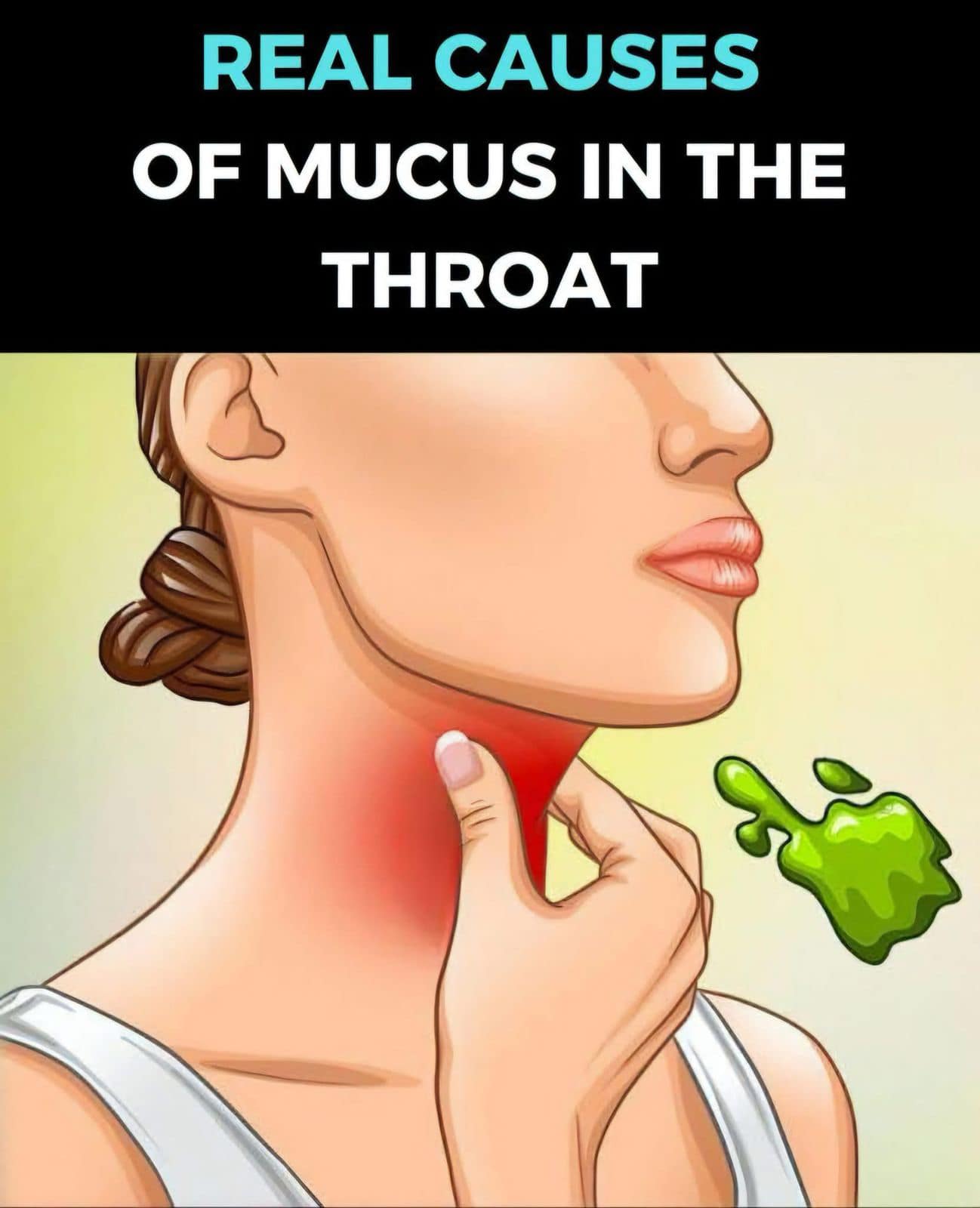Dealing with a cold is never pleasant, especially when it comes with that lingering feeling of congestion in your chest and throat. One of the most frustrating symptoms people experience is the buildup of mucus or phlegm, which can stick around long after other cold symptoms have faded. This excess mucus can lead to persistent coughing, irritation in your throat, and even difficulty breathing—especially when you’re trying to exercise or sleep. Although this condition typically improves on its own over time, it can really interfere with your daily life and overall comfort. Fortunately, there are several easy and effective remedies you can try at home to help break up and get rid of that stubborn mucus so you can breathe easier and feel better faster.

Mucus is a thick, sticky substance naturally produced by the body’s respiratory system. It plays an important role in trapping dust, bacteria, allergens, and other foreign particles to help protect your airways. Normally, this is a good thing, but when the body produces too much mucus—or when it becomes thick and hard to clear—it can become more of a problem than a protector. Excessive mucus in the throat and chest can be caused by various factors including colds, seasonal allergies, respiratory infections, smoking, or exposure to irritants like pollution and chemicals. If you’re struggling with a buildup of mucus and are looking for relief, you might want to try these eight natural and easy-to-follow home remedies before reaching for medications.
The first and most important step is staying well-hydrated. Drinking plenty of fluids helps to thin out the mucus, making it easier to expel through coughing or blowing your nose. Water is the best option, but warm beverages like herbal teas, broths, and clear soups are also helpful because the heat can soothe irritated tissues in the throat and promote mucus drainage. Another easy remedy is gargling with salt water. Mixing half a teaspoon of salt into a warm glass of water and gargling several times a day can reduce mucus and soothe throat inflammation. Make sure to use warm, filtered water and avoid swallowing the mixture. Gargle for 30 to 60 seconds before spitting it out, and repeat as needed.
Steam inhalation is another effective way to ease mucus buildup. Simply pour hot water into a bowl, drape a towel over your head, and breathe in the steam for several minutes. This can loosen the mucus and make it easier to cough up. You can also use a steam inhaler or take a warm shower with the door closed to create a steam-filled environment. Applying a warm compress to your chest or throat can also help with congestion. Just soak a towel in hot water, wring it out, and lay it over the affected area. The warmth helps relax the muscles, increases blood flow, and loosens mucus.
Another powerful natural remedy is honey and lemon. Add a tablespoon of honey and a squeeze of fresh lemon juice to warm water or herbal tea. Honey soothes the throat, while lemon has natural properties that help break up mucus. You can even add ginger, garlic, or a pinch of cayenne pepper to further boost the mucus-clearing effect. Using a humidifier is another excellent way to relieve congestion. Dry air can make mucus thicker and harder to expel, so adding moisture to the air can loosen it and make breathing easier. Just make sure to clean your humidifier regularly to avoid mold and bacteria buildup.
Nasal irrigation, such as using a neti pot or saline spray, is also useful. These tools flush out the nasal passages and help remove excess mucus. Be sure to use distilled or sterilized water and clean your device after each use. Lastly, it’s important to avoid irritants that can trigger or worsen mucus production. Stay away from cigarette smoke, air pollution, and strong chemical fumes. If you’re sensitive to perfumes or cleaning products, try switching to natural alternatives.
There are also some habits to avoid if you’re trying to reduce mucus. Smoking or being around secondhand smoke is one of the worst offenders. Dairy products can sometimes thicken mucus, so it may help to cut back temporarily. Try limiting sugar and processed foods too, as they may contribute to inflammation and excess mucus. Be cautious with over-the-counter nasal sprays and decongestants, which can lead to rebound symptoms if used too often. And while coughing can be annoying, it’s the body’s natural way of clearing mucus—so try not to suppress it unless absolutely necessary.
By using these simple home remedies and avoiding known triggers, you can reduce phlegm and mucus in your chest and throat, making it easier to breathe, speak, and rest. If your symptoms don’t improve or start to get worse, it’s a good idea to check in with your doctor for a more personalized treatment plan. Taking care of your respiratory health now can make a big difference in how you feel overall.





